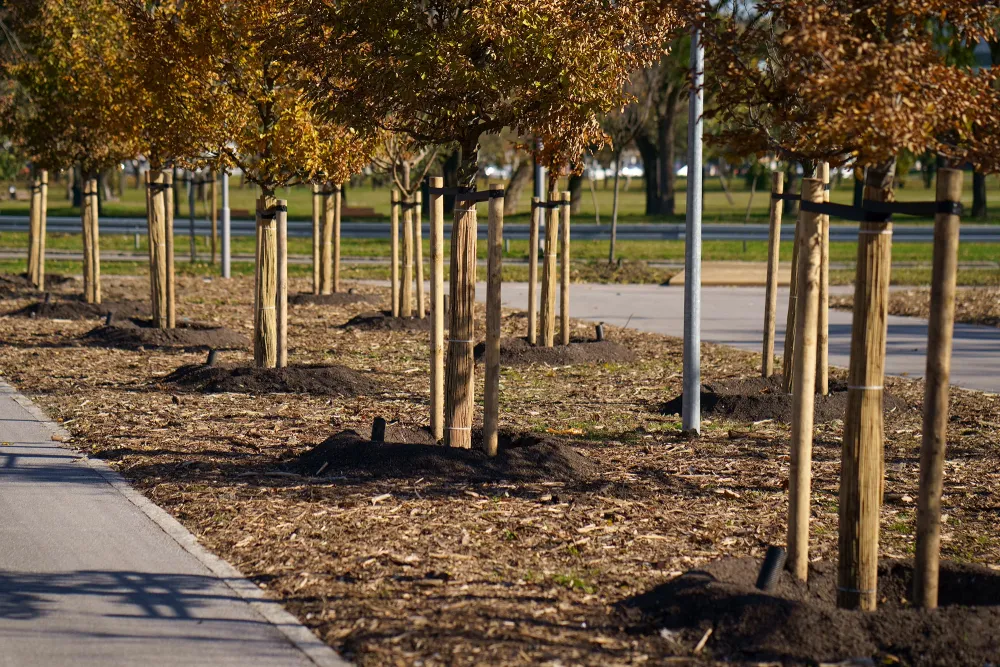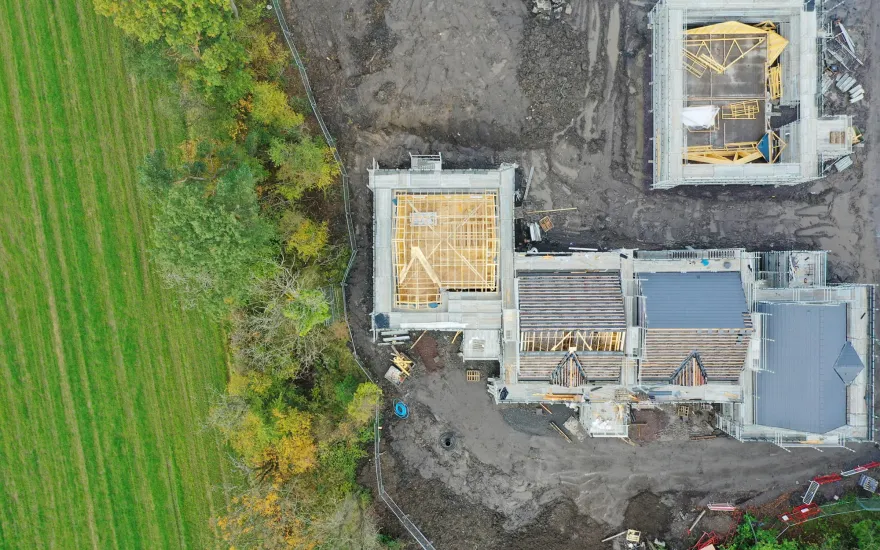Give before midnight on July 31 to double your impact where trees need us most. CHOOSE A PROJECT
Bulletin
How to Measure Progress
Planting trees is popular with the public. It can be fun and is almost always an uplifting and memorable experience. Follow-up, including care and replacement, is more the neglected child of urban forestry. Today’s monitoring and evaluation methods are changing this and are an important step toward sustainable community trees and ensuring the confidence of supporting organizations.

Planting trees is important, but monitoring and evaluation is essential to ensuring long-term success.
There is a saying sometimes attributed to Winston Churchill that might well be applied to urban forestry: “How do we expect to know where we are going unless we know where we’ve been?”
By using some of the tools presented in the pages of this bulletin, it is possible to more clearly see where we are and to plan for what is needed in the future. In short, they can strengthen community forestry in a number of ways. They allow tree boards and forestry staff to quantify progress — or lack of it. Proven progress can be communicated to those who support — or should support — the idea of community trees. Everyone likes success, and it is human nature to rally around a successful cause. On the other hand, by understanding lack of progress, those responsible for urban forestry can plan interventions to correct a situation and turn it into success.
In its advice to organizations seeking funding, World Bank authorities say that “monitoring and evaluation are important management tools to track your progress and facilitate decision making … By closely examining your work, your organization can design programs and activities that are effective, efficient, and yield powerful results for the community.”
There are many ways to evaluate urban forestry and measure progress. The limited space in this bulletin allows for only a few of the more proven and promising. Whatever method is used, something should be used in communities of all sizes to validate and publicize efforts to create greener and cleaner living conditions for residents — and make changes when necessary.
In This Bulletin
Here’s what’s inside:
- The Tree Report Card – evaluating urban trees in a format people are familiar with
- Other Evaluation Methods – additional options for monitoring progress
- Measuring Tree Survival and Growth – making sure trees are continuing to thrive
- Encouraging Citizen Action – engaging the community and enhancing public awareness
